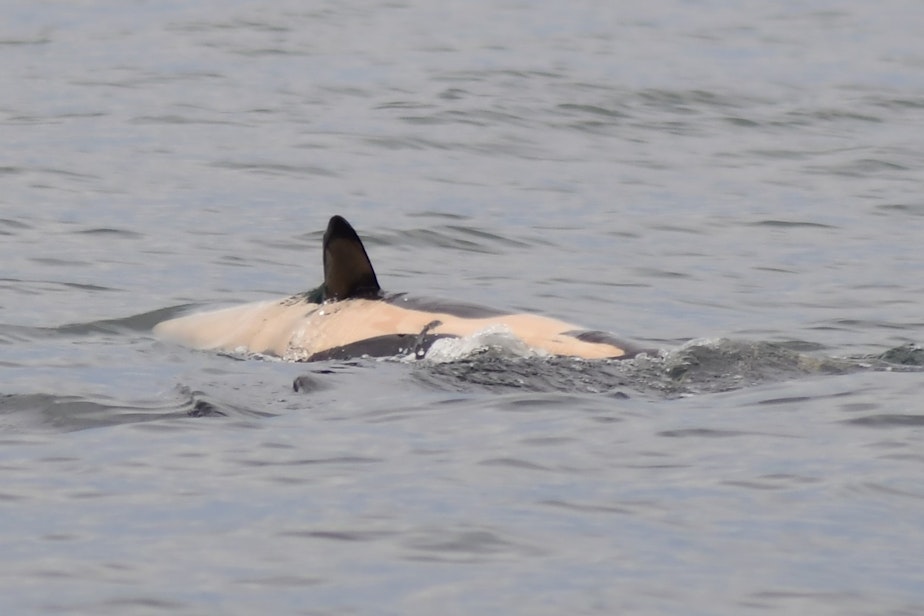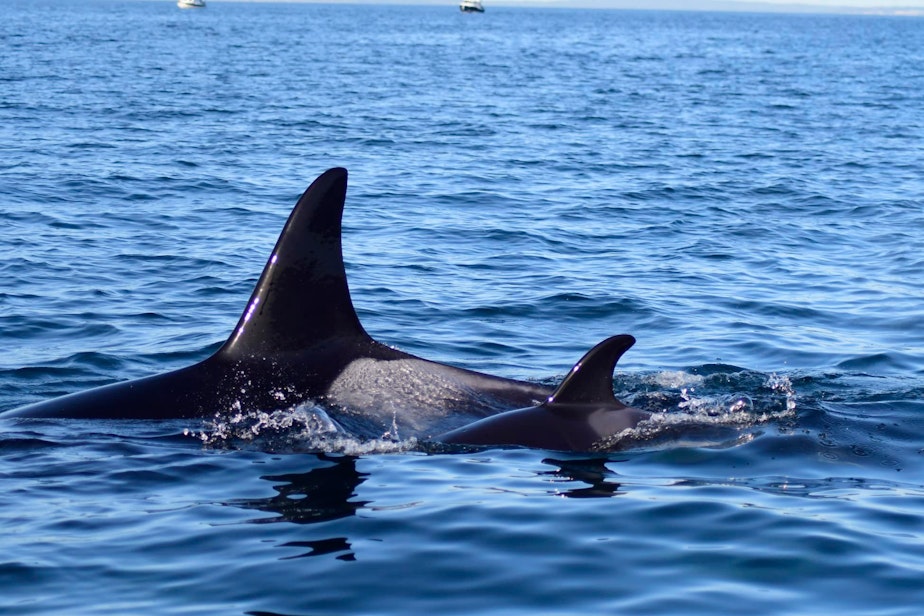Baby orca update: It’s a boy!

Orcas don’t have gender-reveal parties (as far as we know).
But on Thursday, when a baby orca surfaced in Puget Sound and rolled over on its side, biologist Maya Sears was able to photograph its white underside from a small research skiff.
Sears shared her photo with orca surveyor Dave Ellifrit at the Center for Whale Research, who confirmed that this whale, less than a week old, is male.
The latest addition to the Northwest’s endangered orca population is known as J60.
RELATED: Newborn orca spotted near Seattle off Bainbridge Island
Whale lovers have bestowed names on these wild animals, through votes held by the Whale Museum in Friday Harbor. Names have ranged from the silly (Oreo, Spock, Yoda) to the Indigenous (Hy'Shqa, Se-Yi'-Chn), to the oddball (Tahlequah, named for a Vashon Island ferry landing, which was named for a town in Oklahoma). The Whale Museum fundraises by getting people to adopt a named orca for $50 to $80 per year.
Sponsored
“While researchers love numbers, regular people love names,” the nonprofit research group Wild Orca’s website states. “It’s so hard to fall in love with a number!”

According to the nonprofit Orca Network, this baby is likely the grandson of a southern resident killer whale known as J14 or Samish, and the Samish Indian Nation, whose traditional territory includes the San Juan Islands, will get to choose a name for it in the new year.
RELATED: It's getting quieter in Puget Sound and easier for orcas to find dinner
Sponsored
Biologists celebrated the news of the birth cautiously: Many baby orcas die within a year due to toxic pollution and a lack of salmon to eat. J60 is believed to be the first offspring of orca J40, which would mean her mother’s milk could release a concentrated dose of persistent pollutants accumulated over the course of her 19-year life.
This birth brings the endangered orca population, which numbered 98 in 1995, to an estimated 75 individuals.




